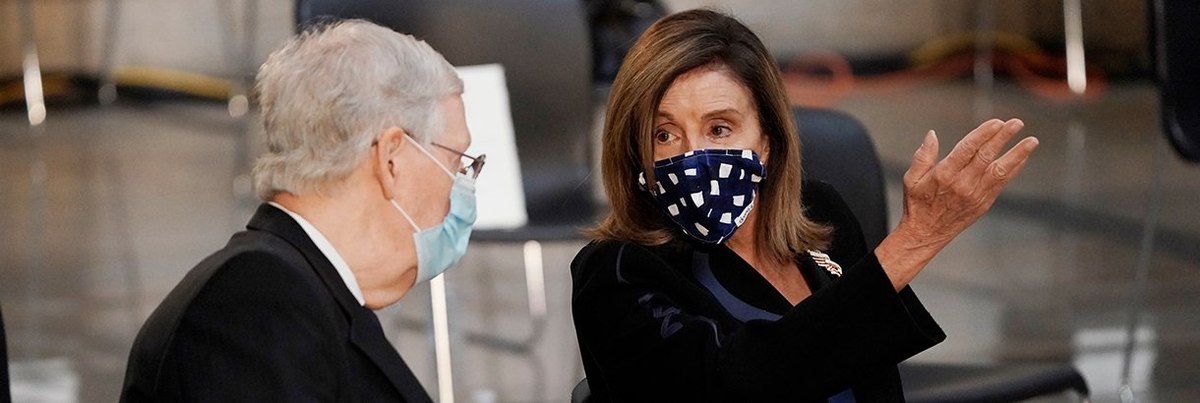While the future of the stimulus bill remains unclear after President Trump’s tweets on Tuesday, Americans are firm in their disapproval of how Congress is handling its job, according to a recent Economist/YouGov poll. Over the last two weeks, three in five (60%) registered voters say they disapprove of Congress and just 15% say they approve.
Talks of a second round of stimulus checks began in July with Congress still unable to reach a deal after three months of negotiations. Since that time, the share of voters who disapproved of how Congress is handling its job ticked up by 10 percentage points.
Voters also hold negative perceptions on whether the current Congress has done more than Congress typically does at this point in its two-year term. In an Economist/YouGov poll conducted last week, 53% of voters say the current Congress is doing less than usual while just 7% think it is doing more than usual.
Opinions on who is to blame for Congress’ performance points to equal blame on both sides of the political aisle. Among voters who think Congress is doing less than usual, a third blame Democrats (34%) and Republicans (34%) for achieving less than usual. Nearly three in 10 (28%) point the blame to both sides equally.
Democrats and Republicans view the matter of who is more to blame differently. Democrats (64%) are more likely to say Republicans in Congress are to blame while Republicans say Democrats in Congress are to blame (75%). Few Democrats (27%) or Republicans (20%) concede that members of Congress from both parties are equally to blame but a plurality of Independents (38%) believe this to be the case.
Americans are not optimistic that economic aid will come before the election: 54% of Americans believe it is unlikely that Congress will pass a coronavirus relief bill before November 3.
President Trump’s tweets early Tuesday called for the end of negotiations over a stimulus package until after the election, but by that same evening he seemed to reverse his stance and tweeted that he is ready to sign a bill for $1,200 stimulus checks.
See the full toplines and tables results from the latest Economist/YouGov poll
Methodology: The Economist survey was conducted by YouGov using a nationally representative sample of 1,500 registered voters interviewed online between October 4–6, 2020. This sample was weighted according to gender, age, race, and education based on the American Community Survey, conducted by the US Bureau of the Census, as well as 2016 Presidential vote, registration status, geographic region, and news interest. Respondents were selected from YouGov’s opt-in panel to be representative of all US citizens. The margin of error is approximately 4.5% for the overall sample.
Image: Getty











